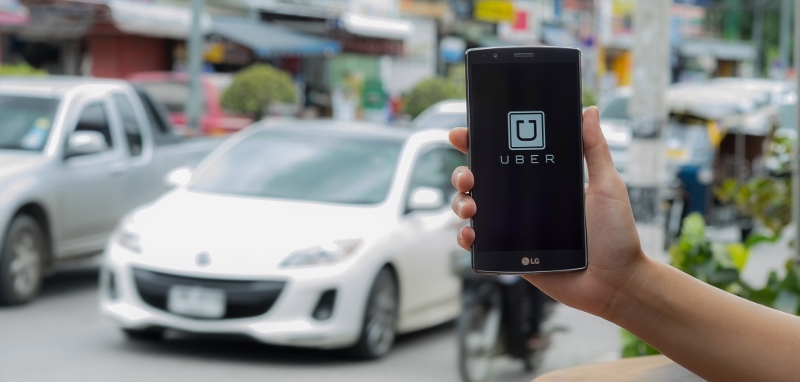By Allison Lee and Claire Chow
Hong Kong, 9 April 2021: In a landmark judgment, the UK’s Supreme Court has ruled Uber drivers should be classified as “workers” rather than “self-employed”, thus making them entitled to benefits such as a minimum wage and paid holidays. The ruling has implications for companies operating in the so-called gig economy, whether in the UK or elsewhere.
Case background
As is widely known, Uber runs a mobile phone app which provides a ride-hailing service to customers. The firm operates in almost 70 countries. The UK case dated back to 2016, when Uber drivers Yaseen Aslam, James Farrar and others submitted a claim to the Employment Tribunal (ET) regarding their employment status.
Uber argued it was merely a booking agent, connecting self-employed contractors who provided transport to passengers via its app. Further, the firm said its agreements clearly stated drivers were “partners” of Uber and “nothing shall create an employment relationship between Uber and the partner”. In view of this, the firm insisted drivers should be classified as “self-employed”.
The ET disagreed and held the drivers were “workers” under the country’s existing employment legislation. This view was upheld by the ET on appeal and by the Court of Appeal, prompting Uber to take the issue to the UK’s highest court.
The Supreme Court took the view that the transportation service performed by drivers and offered to passengers through the app was tightly defined and controlled by Uber. The judges also held that time spent by the claimants working for Uber was not limited to actually driving passengers but included any period when the driver was logged into the app within the area in which they were licensed to operate and were ready and willing to accept trips.
Uber in Hong Kong
Despite operating here for more than six years, Uber rides are considered illegal without a hire-car permit and the firm has faced staunch resistance from the taxi industry. The firm currently has some 14,000 active drivers.
Last September, 24 drivers found guilty of carrying passengers for hire or reward had their appeals dismissed by the Court of Final Appeal. They had been fined between HK$3,000 and HK$4,500 in 2018 for breaching the Road Traffic Ordinance. In her policy address last November, Chief Executive Carrie Lam said her government was preparing legislative amendments to increase the penalties for illegal carriage of passengers for reward.
Employment law
The UK has three main categories of employment status: (1) employees working under a contract of employment, who have the highest level of protection; (2) the genuinely self-employed, who are considered independent contractors and have no employment protection rights; and (3) workers, who have a status between the first two (for example, a sales representative who may be receiving a retainer and earning commission) and who have some rights such as minimum wage, holiday pay and discrimination protection.
The situation is Hong Kong is more black and white, you are regarded as either an employee or a non-employee, and employment law only applies to employees. While the legislation is binary, the body of case law here has developed in such a way as to thoroughly examine all the factual circumstances when determining whether someone is an employee.
Hong Kong’s gig economy
In recent years, the growth of platform businesses in sectors such as ride hailing and food delivery in Hong Kong has led to an increasing number of on-demand gig workers, both full-time and part-time. As well, conventional business sectors such as banking and finance, retail and information technology have increased their hiring of gig workers to complement their permanent workforce and enhance adaptability.
It is estimated there are around 700,000 people who make up Hong Kong’s gig economy. They are not permanently employed, but are freelancers and people juggling different jobs as contract-based workers. According to the Confederation of Trade Unions, many part-time and casual workers do not bother to open MPF accounts because their work is irregular.
Conclusions
The Supreme Court’s judgment strikes at the heart of the Uber business model. Immediately, it impacts businesses operating in the UK and those which recognise similarities to Uber in the way they use contractors or gig workers may wish to review their practices.
More generally, it is an important decision which confirms the starting point when deciding if someone is classified as a “worker” is not the contract itself but the purpose of the relevant employment legislation. It also serves as an important reminder for businesses in the gig economy about the pitfalls of trying to contract out of statutory protections afforded to vulnerable workers. At the same time, it provides reassurance to workers that they will be protected.
In Hong Kong, this may see more workers pushing for full employee status which would bring with it wider obligations, the most significant of which would be MPF contributions.
Allison Lee is a Senior Associate with BC&C, having joined the firm in 2013. She handles a diverse range of civil dispute and litigation matters including shareholders’ disputes, contractual disputes, defamation, fraud, contentious probate, and employment and immigration issues. She is also experienced in matrimonial and family matters. She can be contacted at allison@boasecohencollins.com.
Claire Chow studied for her law degree at the London School of Economics and Political Science, graduating in 2016, and completed her Postgraduate Certificate in Laws two years later at the Chinese University of Hong Kong. She joined BC&C in 2019 initially as a Paralegal before becoming a Trainee Solicitor. She can be contacted at Claire@boasecohencollins.com.



